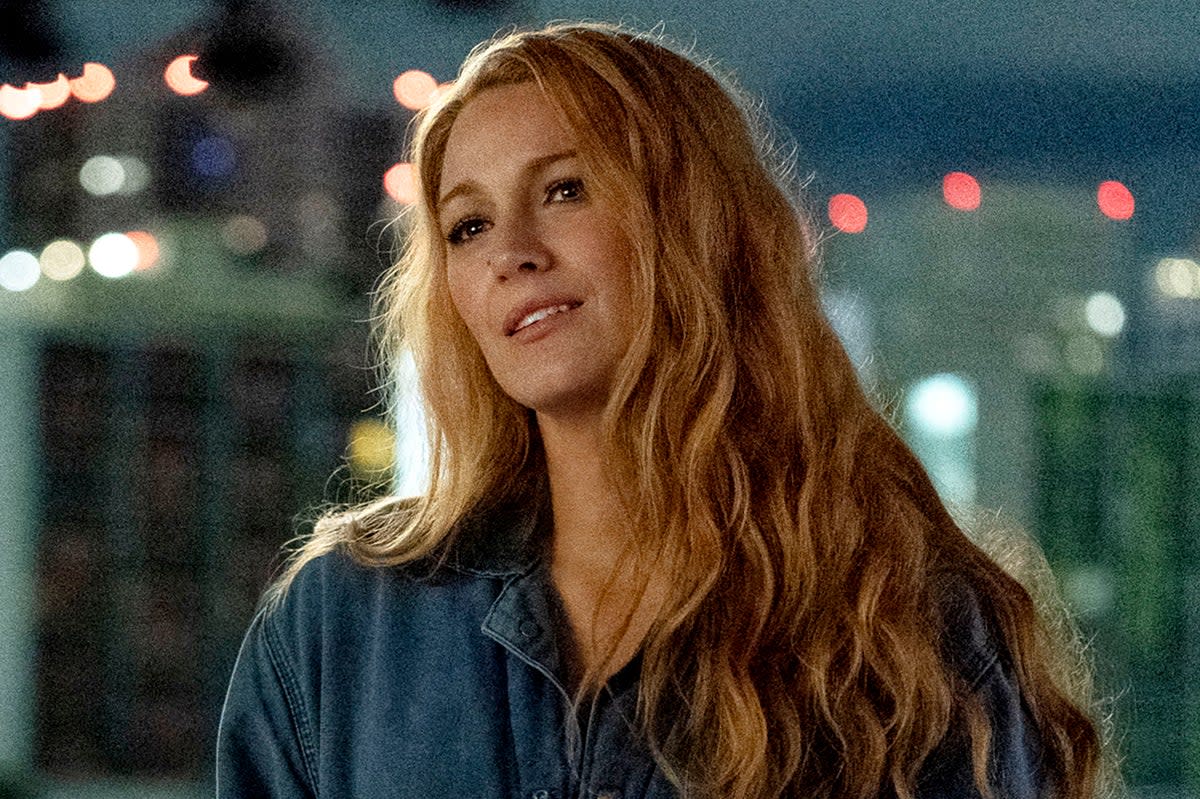It Ends with Us review: This Colleen Hoover adaptation is sincere but completely ludicrous

The issue with It Ends with Us, the big-screen adaptation of Colleen Hoover’s romance bestseller, isn’t its lack of sincerity. It’s there in the tearful exactitude of Blake Lively’s performance, as a woman whose every step is traced by memories of a childhood spent in an abusive home, and her slow-dread realisation that those familiar patterns might exist in her current partner, Ryle Kincaid (Justin Baldoni, also the film’s director). That’s a worthy subject for film – how abuse hides in plain sight, and blinds its targets with the illusion of love.
But then that tricky word, “romance”, comes skipping in from the sidelines, its arms heavy with trite sentiment. Lively’s character isn’t an everywoman, but a near-comical construct of the aspirational upper-middle-class, a walking Pinterest board. Her name is Lily Bloom. She’s about to open her own flower shop, which charges $51 (£40) for the most basic arrangement. She comes from a place called Plethora, Maine, where every house is a colonial-style fever dream. She wears a leather pantsuit to her dad’s funeral, fearless when it comes to the threat of inappropriate mid-eulogy squeaks.
Lily Bloom, in short, does not register as a real person. So, it’s odd, and a little uncomfortable, to see her burdened with such raw trauma – and then to couch that trauma within the old romance trope of battling love interests, the bread-and-butter stuff of Hoover’s literary career. Lily’s path towards healing is sidetracked by the re-emergence of Atlas Corrigan (Brandon Sklenar), her first love, another kid witness to domestic violence, who now happens to own her and Ryle’s favourite new restaurant. We get multiple flashbacks of young Atlas (Alex Neustaedter) and young Lily (Isabela Ferrer, who was either perfectly cast or delivers a pitch-perfect impression of Lively), both of whom are sweet and deeply wounded.
Atlas senses something might be wrong. So he corners Lily, demands that she leaves Ryle, and then starts a fistfight in public. See, Ryle is LA-handsome with impossibly chiselled features, is able to charm the hell out of Lily’s mother (Amy Morton), and also happens to be a neurosurgeon. And Atlas is a nice, simple hometown boy with a rugged moustache, denim jacket, and the saddest puppy dog eyes you’ve ever seen.
In the romance sphere, we’ve already been trained to recognise one as false and suspicious, the other as honest and trustworthy. It feels a little queasy, then, to see Hoover’s story, which has been (largely) faithfully translated to screen by writer Christy Hall, use those presumptions to feed into the question of whether Ryle’s red flags point to real abusive behaviours. The more he and Atlas clash, the more it starts to feel like the issue of domestic violence is primarily here as a dramatic device – a way to pull its protagonist away from one man and towards another.

It Ends with Us is capable of poignancy. Yet it’s also entirely ill equipped to square such sensitive material up against scenes of diamanté boots being sensually rolled down, an out-of-place but very funny Jenny Slate rocking up in a string of Carrie Bradshaw-worthy outfits, or Lively simply revelling in that deep, half-laughing voice that made her an icon of casual cool on TV’s Gossip Girl. This film’s good intentions feel misplaced.
Dir: Justin Baldoni. Starring: Blake Lively, Justin Baldoni, Jenny Slate, Hasan Minhaj, Brandon Sklenar. 15, 130 mins.
‘It Ends with Us’ is in cinemas from 9 August


